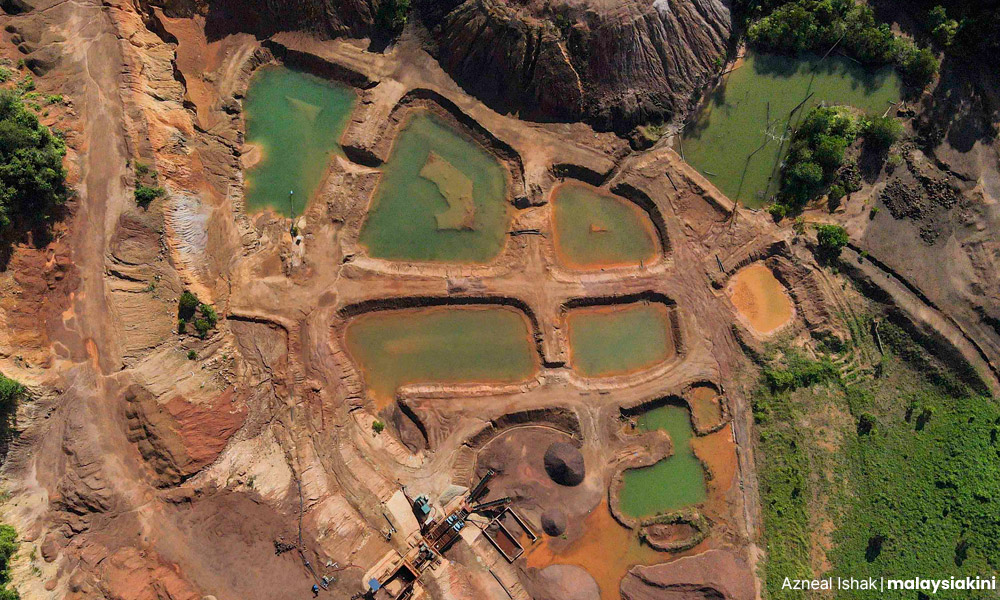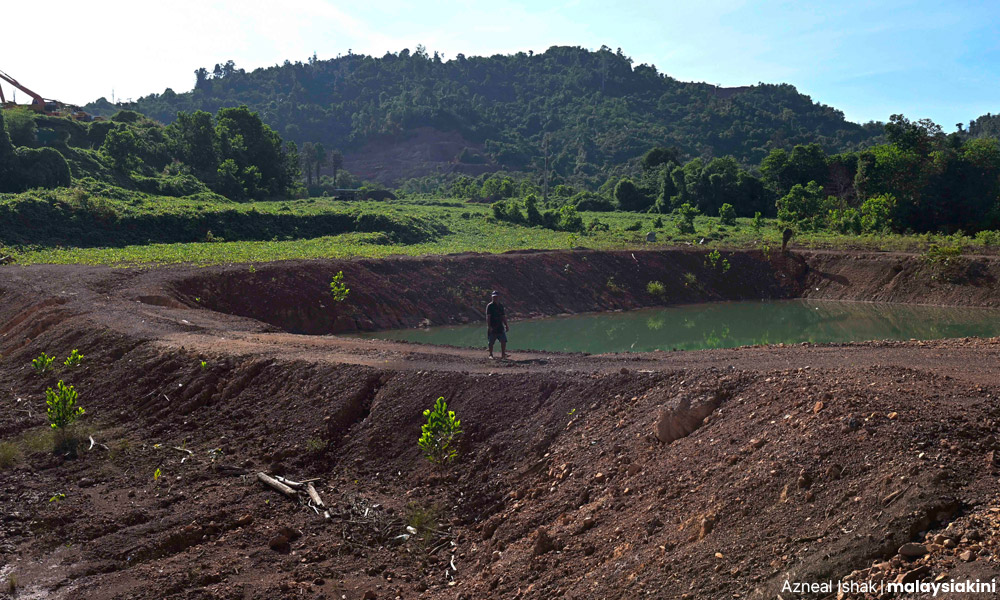Tasik Chini's biosphere reserve status from the United Nations Educational, Scientific, and Cultural Organisation (Unesco) is currently under scrutiny and its preliminary findings are not favourable.
The lake is the first of only three Malaysian biosphere sites recognised by Unesco as part of the Man and Biosphere (MAB) programme.
The programme studies and improves the relationship between people and their environment through conservation and sustainable use of natural resources.
According to Unesco's first periodical review of Tasik Chini, the lake no longer meets the criteria to be part of their World Network of Biosphere Reserves (WNBR).
The report cited "newly cleared forest areas with intensive land conversion", and the reopening of old mines in the surrounding locations.
"A year after biosphere reserve designation, some former mining sites located at high gradient points (Ketaya Hill and Chini Hill) re-opened and expanded resulting in catastrophic environmental impacts such as sedimentation, water quality deterioration, and river bank degradation.
"Another major cause of environmental damage is land use conversion from rubber plantation and forest area to oil palm plantation. Some of this expansion took place within the main core areas," it said.
The finding was tabled at the Unesco International Co-ordinating Council of the MAB last September but was published for public access two months later.
Every biosphere reserve under the programme is subject to periodical review every 10 years.
According to the council meeting report, rapid expansion activities at Tasik Chini had adverse impacts not only on regional biodiversity but also on the local economy.

"Traditional subsistence activities of local indigenous people (the Jakun Tribe), which depend on forest resources, have been obstructed, and the rising trend in tourists visiting and fishing in the natural lake has reversed due to deforestation."
Unclear, confusing plan
Besides disruption to the environment, the MAB meeting also highlighted several issues with documentation in Tasik Chini's periodic review, including the absence of an updated zoning map and a management plan for the biosphere reserve.
The report noted that government agencies have carried out procedures on mitigation, rehabilitation, and enforcement to address problems arising from deforestation at Tasik Chini, with the Pahang state government updating the gazette for the Tasik Chini State Park to exclude areas which had been granted access for mining.
It said the map of the planned new gazette provided in the review, however, was not in English. There was also no proposal for zonation change, despite such a move being planned.
"However, a table on the area includes figures on proposed changes to each zone with no related explanation, which has caused confusion. The human population numbers in the biosphere reserve are also unclear and inconsistent across the report.
"The Advisory Committee noted the absence of a management plan for the biosphere reserve as well as a lack of information regarding the manager or staff responsible for the coordination of the management of the biosphere reserve.

"The Advisory Committee, therefore, concluded that the biosphere reserve does not meet the criteria of the Statutory Framework of the WNBR."
No status withdrawal for now
The report said Malaysian authorities have been requested to submit a detailed plan for the Tasik Chini Biosphere Reserve by September 30 this year.
The plan must provide the world body with an updated zonation of the biosphere reserve "maintaining the three functions of a biosphere reserve", details of the biosphere reserve management, and confirmation of an office or manager coordinating the activities of the biosphere reserve management plan.
Despite the finding, Tasik Chini's status as a biosphere reserve is not at risk of being revoked at this juncture, according to Unesco MAB Programme specialists.
In an emailed response to Malaysiakini's request for clarification, they said it is a normal process in a periodic review to request for additional information from authorities.
"The Tasik Chini Biosphere Reserve is not facing such risk at this stage.
"It is quite a normal process that upon an examination of the Periodic review report, the International Advisory Committee on Biosphere Reserves (IACBR) makes recommendations (approved by the MAB-International Coordinating Council) enabling it to submit the additional information to examine them and decide accordingly."
Request for comments from the Energy and Natural Resources Ministry were not answered at the time of writing. - Mkini



No comments:
Post a Comment
Note: Only a member of this blog may post a comment.